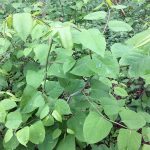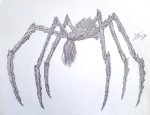Why loom? We were thinking about the loom’s invocation of the closeness of the textile sense, fabrics that bind our desires and bodies. The loom means also the threatening feeling of an inevitable terrible thing as it approaches. And the possibility of b-looming, from the rest, waste, residue, remainders of the storm. Furthermore, loom echoes a gendered practice of writing textile; in the making of fabric like Arachné, that talented mortal weaver who challenged the god of wisdom, as well as Penelope, who weaved and weaved (a mournful making and unmaking fabrics) to postpone her arranged marriage. The loom is a metaphor that invites us to think of reality as something deeply embedded within context, like “the weaver's loom that is discerned within the cloth it weaves” (Veena Das). That means, modes of knowing constitute the objects of knowing in a manner that profoundly affects how one comes to inhabit a new reality.
That is just the conceptual backdrop for us. In this block we want to focus on a support structure that will help each other research and continue what has been initiated in the past block, ‘Troubled Gardens.’ We transport what has been found out there and elsewhere into looming (transposed into weaving + feeling the darkness of it). That is to sustain being immersed in the subjects of ecology, feminism and their possible political agency in this unpredictable and precarious world we are living in. In the coming block, we’ll take these lines thought while going back “home” (we will land somewhere in a.pass studios hosting three scenographies from Laura, Maurice and Caterina for their End-Communication). We would take the movement of going inside as the one to prepare for winter: gather, digest, tell stories, imagine futures. As a curatorial approach we are not interested in obsessing on these concepts per se, but working in and through the particular challenges of our researches.
We are structuring the block around three ‘scores’ (i.e. structures for enabling the plural): “what do you eat? what do you think? what do you do?” The score here is seen like the loom (a trope of text and textile): thinking made in the context of its weaving in the criss-crossing of one another's desires. Like patterns of giving and receiving affect, concepts, panics, worries, concerns, literacies, curiosities, play, know-ofs, as-ifs, why-nots, sometimes obvious sometimes cryptic sites that you and your colleagues are caught in long enough. By ‘playing’ one integrates, takes care of things that one might not be interested in, engages in an ongoing pattern of feeding and being fed. This joins the power of the transformative by paying attention to things that one does not notice alone. ‘One is alone together.’ What kind of monsters are we?!
The score is structured on a weekly basis. We will gather one morning and one afternoon only once a week, as follows:
Mondays from 10:00 till 15:00
what do you eat? is about bringing your food--we feast, making lunch, not cooking, eating together, extended breakfast, with reading practices. Bring something you want to share: text, problem, theme, practice, concern, old question, new question, film, … in case you have nothing, Sina and Lilia have a bag of goodies.
what do you think? has to do with the harvesting fields of interest, readings, questions you have in your work and what has been provoked in the last block. Asking what was the sort of knowledge about the ecological thought that you inhabited in ‘Trouble Gardens’?
Tuesdays from 14:00 till 18:00
what do you do? has to do with what are the residues of the kinds of knowledge, imagination, relations that you are bringing into your current work. There is a list of existing
scores in the a.pass website, if you want to know more go
here. Performing Back
Score, Medium
Score, Bubble or Writing, Fragile Community
Score, each with its own different nuances of attention, writing and composing. We will present them during the opening week and work with one
score throughout the block.
Participants
Muslin Brothers, Amélie van Elmbt, Rui Calvo, Ana Paula Camargo, Chloe Chignell, Diego Echegoyen, Deborah Birch, Lucia Palladino, Piero Ramella, Adriano Wilfert Jensen, Quinsy Gario, Kasia Torz, Magda Ptasznik ,
Dedicated mentors
Sara Manente, works with digestion and fermentation processes and feminist theory. Choreographer and performance artist working on ethics and aesthetics of fermentation in relation to artistic research.
Jeroen Peeters, writer, dramaturg and performer, part of the artistic team of Sarma, a laboratory for discursive practices and expanded publication. The topics of his work includes: performing arts as a site for social experiments, embodied knowledge, languages of making, visual regimes, and ecologies of attention.
Nicolas Galeazzi, in the cross over through media, methodologies, materials and theories, he works as an actor, teacher, theater director, concept artist, and performance artist. Galeazzi works with Mise-en-Discourse - performative research frameworks where public can experiment with political and social conditions.
Guests
Milena Kipfmüller and Klaus Janek, artist duo resident at Q-O2, working on development of theatrical, radio and soundwork that deals with aspects of staging sound in specific situations, the processing of musical material, field recordings and language based sound. They will give a workshop in a format of a practical research about how sound acts by itself in a context of performative dramaturgies. Their contribution to the block coincides with the a.pass engagement in defining its own notion of making public, performative devices and working with sound.
Curators
Lilia Mestre, is a performing artist and researcher based in Brussels. She is interested in art practices as a medial tool between several domains of semiotic existences. Coming from a choreography and dance background, Mestre now researches on Scorescapes, a research she started in a.pass questioning support structures and artificial friendships in artistic research environments.
Sina Seifee, artist-researcher-storyteller works on the poetics of animal description, the ecological cosmologies of nonhumans-with-history. His artworks illustrate research trajectories that traverse the questions of technology, storytelling, globalism and intercultural mythologies, with an eye on the premodern techno-culture in the Middle East.















